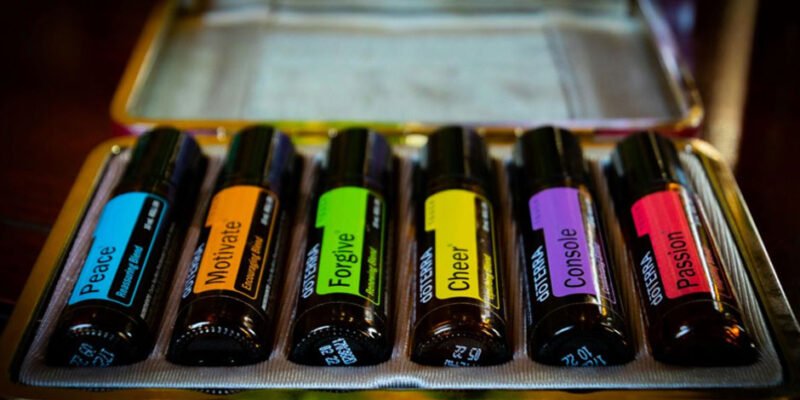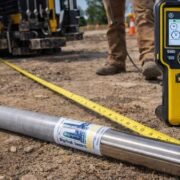Have you ever wondered if your product’s label can withstand the rigours of its environment? Choosing the right label is crucial – not just for aesthetics but also for maintaining your product’s integrity and brand image. A label that smudges, peels, or fades could harm your brand’s reputation and customer satisfaction.
Waterproof labels can resist moisture, liquids, and harsh environments. But how do you know if your product needs them? Here, we’ll explore the key factors to help you decide if waterproof labels are the right choice for your product.
What Are Waterproof Labels?
Waterproof labels can resist water, moisture, and other environmental factors. Unlike regular labels, waterproof labels are built to last, which might smudge or peel when exposed to liquids.
They are made from durable materials like vinyl or polyester, which are inherently resistant to water. They often feature special printing techniques, such as UV-resistant inks, to make sure that the text and images on the label remain clear and vibrant, even after prolonged exposure to moisture.
The adhesives used in waterproof labels are also carefully selected to ensure they stay attached to the product regardless of the conditions.
Signs That You Might Need Waterproof Labels
Now that you understand what waterproof labels are and why they’re important let’s explore the specific situations where they become essential. Recognising these signs can help you decide whether waterproof labels are the right choice for your product.
1.Exposure to Moisture or Water
If your product is likely to be exposed to moisture or water, it’s a strong sign that you need waterproof labels.
For instance, condensation can form on the outside of the packaging if your products are refrigerated, causing a regular label to smudge or peel. Similarly, products used in bathrooms, like shampoos, lotions, or soaps, are constantly exposed to water.
The situation is even more challenging for outdoor products, like gardening tools or sports equipment. These items are exposed to rain, mud, and other environmental factors that can quickly degrade a regular label.
2.Durability Requirements
A durable label is essential if your product is exposed to harsh conditions, such as chemicals, oils, or extreme temperatures. Non-waterproof labels might not hold up in these environments, leading to the label’s fading, peeling, or even complete disintegration.
Waterproof labels can endure exposure to tough conditions without losing their clarity or adhesion. For example, a label on a bottle of industrial cleaner needs to resist not just moisture but also chemical spills and splashes.
Choosing waterproof labels makes sure that your product remains safe, reliable, and professional-looking, even in the most demanding environments.
How to Determine If Waterproof Labels Are Right for Your Product?
Choosing whether your product needs waterproof labelling is more than just guessing. It needs careful consideration of where and how your product will be used. Here is how to make an informed decision.
1.Assess Your Product’s Environment
- Identify Storage Conditions: Consider where your product will be kept —will it be in a cool, humid refrigerator, a steamy bathroom, or an outdoor setting exposed to the elements? These environments increase the risk of moisture exposure, making waterproof labels a smart choice.
- Consider Temperature Fluctuations: Think about whether your product will experience extreme temperatures, either hot or cold. Labels on products like frozen foods or hot beverages need to withstand these conditions without deteriorating.
- Consider Liquid Exposure: Products stored near sinks, in kitchens, or used outdoors are prime candidates for waterproof labels to make sure the label stays intact and readable.
2.Consider Customer Interaction
Consider how your customers will interact with your product. If your product is frequently handled – like a bottle of sunscreen at the beach or a jar of pickles in a kitchen – waterproof labels are likely essential.
These labels prevent the smudging and peeling that can occur with regular labels, ensuring that your product always looks professional, and that important information remains readable.
3.Assess Label Lifespan Needs
If your product has a long shelf life, the label needs to remain durable and legible over time. Waterproof labels can resist the wear and tear that can occur with regular labels, such as fading, peeling, or discolouration, especially in challenging environments.
For products with long shelf lives, such as cleaning supplies or outdoor equipment, using waterproof labels can prevent the need for frequent label replacements or repairs.
Final Words
Deciding whether your product needs waterproof labels is essential for maintaining its quality and appearance.
By assessing the environment, considering how customers will use your product, and considering the label’s durability needs -you can make sure your product stays protected and visually appealing, even in challenging conditions.
Waterproof labels can be the key to improving your product’s reliability and customer satisfaction, especially in challenging conditions.














Comments